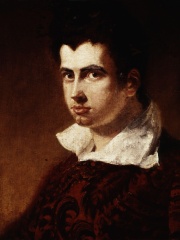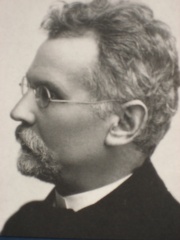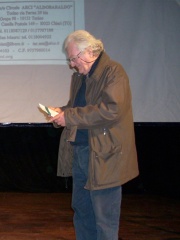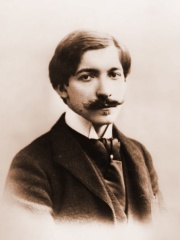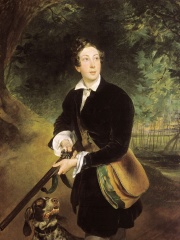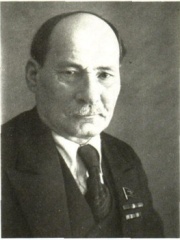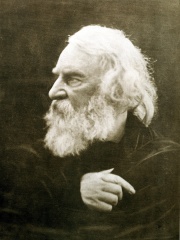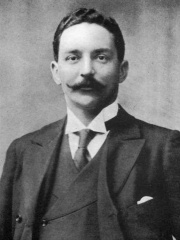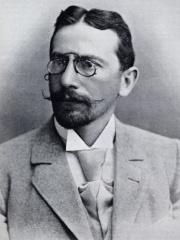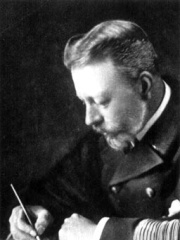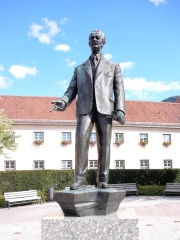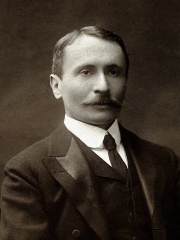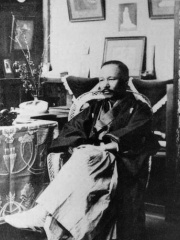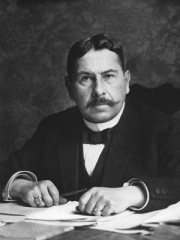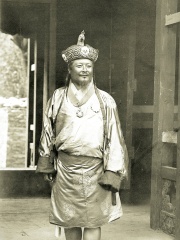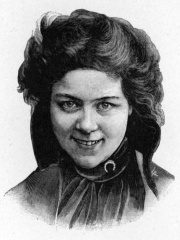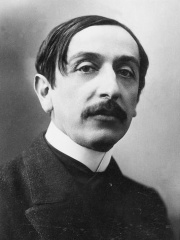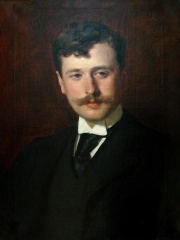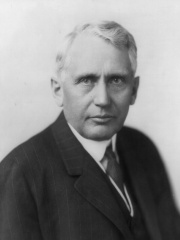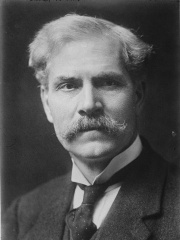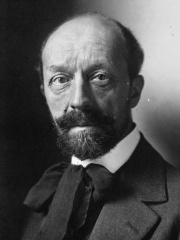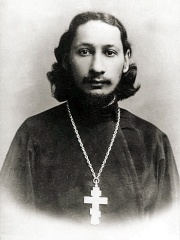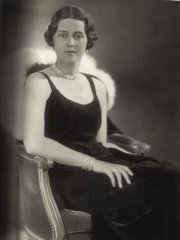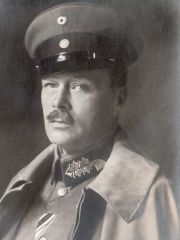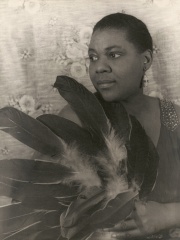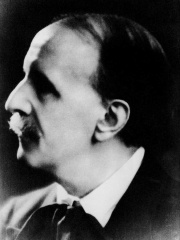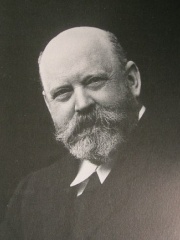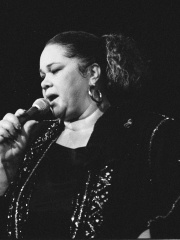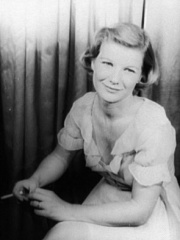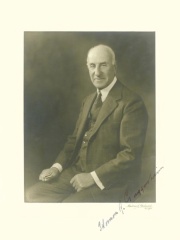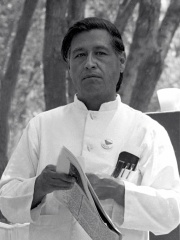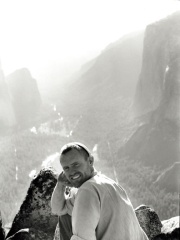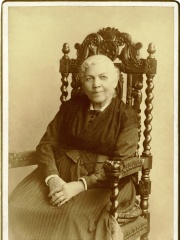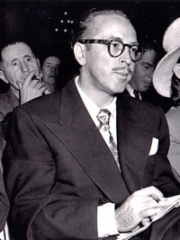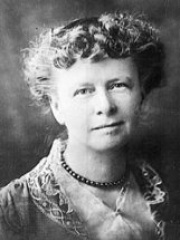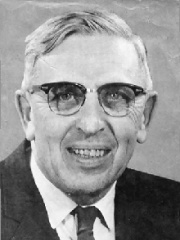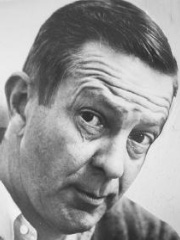Escritor
Edith Wharton
1862 - 1937
ES.WIKIPEDIA PAGE VIEWS (PV)
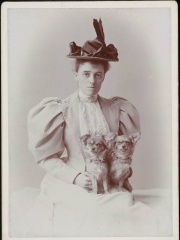
 Edith Wharton
Edith Wharton
Su biografía está disponible en 63 idiomas en Wikipedia (aumentó de 61 en 2024). Edith Wharton ocupa el puesto 1078 entre los escritor más populares (bajó del puesto 1000 en 2024), el puesto 1541 entre las biografías más populares de Estados Unidos (bajó del puesto 1144 en 2019) y el puesto 120 entre los escritor de los estados unidos más populares.
Memorability Metrics
Page views of Edith Wharton by language
Among Escritors
Among escritors, Edith Wharton ranks 1,078 out of 7,302. Before her are Leigh Hunt, Thomas Pynchon, Bolesław Prus, Michel Tournier, Tavo Burat, and Bernard-Henri Lévy. After her are Pierre Louÿs, Ibn Sirin, Aleksey Konstantinovich Tolstoy, Dubravka Ugrešić, Yakub Kolas, and Henry Wadsworth Longfellow.
Most Popular Escritors in Wikipedia
Go to all RankingsLeigh Hunt
1784 - 1859
HPI: 67.67
Rank: 1,072
Thomas Pynchon
1937 - Present
HPI: 67.66
Rank: 1,073
Bolesław Prus
1847 - 1912
HPI: 67.65
Rank: 1,074
Michel Tournier
1924 - 2016
HPI: 67.64
Rank: 1,075
Tavo Burat
1932 - 2009
HPI: 67.64
Rank: 1,076
Bernard-Henri Lévy
1948 - Present
HPI: 67.63
Rank: 1,077
Edith Wharton
1862 - 1937
HPI: 67.63
Rank: 1,078
Pierre Louÿs
1870 - 1925
HPI: 67.63
Rank: 1,079
Ibn Sirin
653 - 729
HPI: 67.63
Rank: 1,080
Aleksey Konstantinovich Tolstoy
1817 - 1875
HPI: 67.62
Rank: 1,081
Dubravka Ugrešić
1949 - 2023
HPI: 67.62
Rank: 1,082
Yakub Kolas
1882 - 1956
HPI: 67.62
Rank: 1,083
Henry Wadsworth Longfellow
1807 - 1882
HPI: 67.61
Rank: 1,084
Contemporaries
Among people born in 1862, Edith Wharton ranks 29. Before her are Henri Pirenne, J. Bruce Ismay, Siegbert Tarrasch, Prince Henry of Prussia, Daniel Swarovski, and Aurel Stein. After her are Mori Ōgai, Gustav Ritter von Kahr, Ugyen Wangchuck, Loie Fuller, Maurice Barrès, and Georges Feydeau. Among people deceased in 1937, Edith Wharton ranks 36. Before her are Frank B. Kellogg, Ramsay MacDonald, Albert Roussel, J. Bruce Ismay, Emilio Mola, and Takeo Wakabayashi. After her are Pavel Florensky, Princess Cecilie of Greece and Denmark, Ernest Louis, Grand Duke of Hesse, Bessie Smith, Louis Vierne, and Walter Rothschild, 2nd Baron Rothschild.
Others Born in 1862
Go to all RankingsHenri Pirenne
HISTORIAN
1862 - 1935
HPI: 68.87
Rank: 23
J. Bruce Ismay
BUSINESSPERSON
1862 - 1937
HPI: 68.63
Rank: 24
Siegbert Tarrasch
CHESS PLAYER
1862 - 1934
HPI: 68.58
Rank: 25
Prince Henry of Prussia
POLITICIAN
1862 - 1929
HPI: 68.28
Rank: 26
Daniel Swarovski
INVENTOR
1862 - 1956
HPI: 68.17
Rank: 27
Aurel Stein
ARCHAEOLOGIST
1862 - 1943
HPI: 67.93
Rank: 28
Edith Wharton
WRITER
1862 - 1937
HPI: 67.63
Rank: 29
Mori Ōgai
WRITER
1862 - 1922
HPI: 67.53
Rank: 30
Gustav Ritter von Kahr
POLITICIAN
1862 - 1934
HPI: 67.50
Rank: 31
Ugyen Wangchuck
POLITICIAN
1862 - 1926
HPI: 67.21
Rank: 32
Loie Fuller
ACTOR
1862 - 1928
HPI: 67.03
Rank: 33
Maurice Barrès
WRITER
1862 - 1923
HPI: 66.34
Rank: 34
Georges Feydeau
WRITER
1862 - 1921
HPI: 66.34
Rank: 35
Others Deceased in 1937
Go to all RankingsFrank B. Kellogg
POLITICIAN
1856 - 1937
HPI: 69.43
Rank: 30
Ramsay MacDonald
POLITICIAN
1866 - 1937
HPI: 69.11
Rank: 31
Albert Roussel
COMPOSER
1869 - 1937
HPI: 68.91
Rank: 32
J. Bruce Ismay
BUSINESSPERSON
1862 - 1937
HPI: 68.63
Rank: 33
Emilio Mola
POLITICIAN
1887 - 1937
HPI: 68.52
Rank: 34
Takeo Wakabayashi
SOCCER PLAYER
1907 - 1937
HPI: 68.35
Rank: 35
Edith Wharton
WRITER
1862 - 1937
HPI: 67.63
Rank: 36
Pavel Florensky
PHILOSOPHER
1882 - 1937
HPI: 67.58
Rank: 37
Princess Cecilie of Greece and Denmark
POLITICIAN
1911 - 1937
HPI: 67.29
Rank: 38
Ernest Louis, Grand Duke of Hesse
WRITER
1868 - 1937
HPI: 67.24
Rank: 39
Bessie Smith
SINGER
1894 - 1937
HPI: 67.23
Rank: 40
Louis Vierne
MUSICIAN
1870 - 1937
HPI: 66.86
Rank: 41
Walter Rothschild, 2nd Baron Rothschild
POLITICIAN
1868 - 1937
HPI: 66.59
Rank: 42
In Estados Unidos
Among people born in Estados Unidos, Edith Wharton ranks 1,541 out of NaN. Before her are Etta James (1938), George Stigler (1911), Jackie Robinson (1919), Barbara Bel Geddes (1922), Solomon R. Guggenheim (1861), and Cesar Chavez (1927). After her are Gary Gilmore (1940), Henry Way Kendall (1926), Dennis Rader (1945), Henry Wadsworth Longfellow (1807), Shia LaBeouf (1986), and Harriet Jacobs (1813).
Others born in Estados Unidos
Go to all RankingsEtta James
SINGER
1938 - 2012
HPI: 67.66
Rank: 1,535
George Stigler
ECONOMIST
1911 - 1991
HPI: 67.65
Rank: 1,536
Jackie Robinson
BASEBALL PLAYER
1919 - 1972
HPI: 67.64
Rank: 1,537
Barbara Bel Geddes
ACTOR
1922 - 2005
HPI: 67.64
Rank: 1,538
Solomon R. Guggenheim
BUSINESSPERSON
1861 - 1949
HPI: 67.64
Rank: 1,539
Cesar Chavez
SOCIAL ACTIVIST
1927 - 1993
HPI: 67.63
Rank: 1,540
Edith Wharton
WRITER
1862 - 1937
HPI: 67.63
Rank: 1,541
Gary Gilmore
EXTREMIST
1940 - 1977
HPI: 67.63
Rank: 1,542
Henry Way Kendall
PHYSICIST
1926 - 1999
HPI: 67.62
Rank: 1,543
Dennis Rader
EXTREMIST
1945 - Present
HPI: 67.62
Rank: 1,544
Henry Wadsworth Longfellow
WRITER
1807 - 1882
HPI: 67.61
Rank: 1,545
Shia LaBeouf
ACTOR
1986 - Present
HPI: 67.61
Rank: 1,546
Harriet Jacobs
WRITER
1813 - 1897
HPI: 67.61
Rank: 1,547
Among Escritors In Estados Unidos
Among escritors born in Estados Unidos, Edith Wharton ranks 120. Before her are Dalton Trumbo (1905), Eleanor H. Porter (1868), Mary Higgins Clark (1927), Clifford D. Simak (1904), William Gibson (1948), and Thomas Pynchon (1937). After her are Henry Wadsworth Longfellow (1807), Harriet Jacobs (1813), Tess Gerritsen (1953), Roger Zelazny (1937), Jeff Lindsay (1952), and John Cheever (1912).
Dalton Trumbo
1905 - 1976
HPI: 68.10
Rank: 114
Eleanor H. Porter
1868 - 1920
HPI: 68.04
Rank: 115
Mary Higgins Clark
1927 - 2020
HPI: 67.86
Rank: 116
Clifford D. Simak
1904 - 1988
HPI: 67.71
Rank: 117
William Gibson
1948 - Present
HPI: 67.70
Rank: 118
Thomas Pynchon
1937 - Present
HPI: 67.66
Rank: 119
Edith Wharton
1862 - 1937
HPI: 67.63
Rank: 120
Henry Wadsworth Longfellow
1807 - 1882
HPI: 67.61
Rank: 121
Harriet Jacobs
1813 - 1897
HPI: 67.61
Rank: 122
Tess Gerritsen
1953 - Present
HPI: 67.55
Rank: 123
Roger Zelazny
1937 - 1995
HPI: 67.47
Rank: 124
Jeff Lindsay
1952 - Present
HPI: 67.42
Rank: 125
John Cheever
1912 - 1982
HPI: 67.41
Rank: 126
